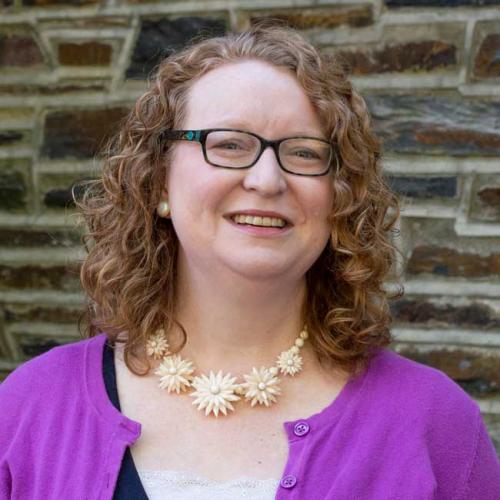
Blog
On the Road to a Ph.D., You’ve Got OPTIONS
The journey to a Ph.D. can be long and winding. Rather than driving an open freeway unspooling straight in front of you for miles ahead, navigating your way to a doctoral degree can sometimes seem more like encountering a mass of branching paths. You meet the occasional dead-end on your way, retrace your steps, and head in a new direction.

Duke OPTIONS can help you plan your professional development throughout your Ph.D. program. You’ve gotten to Duke because you’re a goal-driven, talented, and ambitious researcher; engaging in professional development can make you even more effective. Graduate students in STEM disciplines who teach, for example, improve their research skills because they have to break down research methodologies and the reasons behind them for undergraduate students (Feldon et al., 2011). Some research even suggests that engaging in professional development as a graduate student can speed students' time to degree (Fuhrmann et al., 2011).
If you’re reading this post, I probably don’t need to convince you of the value of professional development. What you may need is guidance in navigating the rich array of resources, programs, and tools that Duke provides for your professional development, and in connecting with opportunities in the broader Triangle and online communities. What you need is a road map.
Duke OPTIONS is designed to help you plan to take advantage of professional development resources at the right times. It breaks down the Ph.D. journey into three stages: building awareness (the first year), developing skills (roughly years 2-4), and documenting experiences (the final 12-18 months). These stages are based on the work of the 2011 Graduate Career and Professional Development Advisory Committee, led by Senior Associate Dean for Graduate Programs and Associate Vice Provost for Academic Diversity Jacqueline Looney.
The competencies in Duke OPTIONS—teaching and mentoring, communication, leadership, professional adaptability, self-awareness, and professionalism and scholarly integrity—are the competencies that undergird all the professional development programming offered by The Graduate School. All Ph.D. students can benefit from increasing these six critical competency areas, which are based on research (Poock, 2001) and expanded to include Duke’s focus on scholarly integrity as a degree requirement. Duke OPTIONS is designed to allow you flexibility in developing these competencies at different rates over the course of your degree while helping you identify critical questions and concerns at each stage.
Customize Your OPTIONS
In addition to providing suggestions that connect you with information nodes that can help you navigate further along your path, Duke OPTIONS allows you to create custom waypoints along your journey that help you craft an effective Road Map. You can plot your prelims, field research, an internship, and your defense into your plan, as well as personal events that may impact your professional development.
And, just as a map isn’t much use unless you take it with you, Duke OPTIONS is most effective when you integrate it into your routine: you can export your Road Map into your calendar or into a spreadsheet you can share in a conversation with a mentor. You can even choose to share your Road Map with the graduate advising team at the Duke Career Center for an upcoming appointment.
The Graduate School’s hope is that Duke OPTIONS will help you find your path to a fulfilling career that leverages the skills you build during your Ph.D. program, whether that career is in academia, business, government, nonprofit, or as an entrepreneur. Duke OPTIONS can bridge the space between your Ph.D. program and the stories of successful alumni (both in individual profiles and aggregate data) by supporting you in plotting your route.
Researching the Researchers
Beyond supporting our current students, Duke OPTIONS can also help The Graduate School support future students. When you first enter the tool, you’ll be asked to enter demographic information to set up your profile. The team will use these data in answering key questions about the effect of professional development information on recruiting and admissions, and on the effect of involvement in professional development activities on students’ degree completion. We’ll use aggregated, anonymized data from the tool together with aggregate data on admissions, time-to-degree, and degree completion, which are already public.
As you get underway with Duke OPTIONS, you can help future students, too, by suggesting content and ideas we may have missed. We welcome your suggestions for continuously improving the tool. As you draw closer to your degree destination each day, watching the endpoint enlarge in the windshield, Duke OPTIONS can support you in driving your professional development toward your career goals.
We gratefully acknowledge support from the Council of Graduate Schools ETS/CGS Award for Innovation in Promoting Success in Graduate Education: From Admissions through Completion to fund the development of Duke OPTIONS (Online Professional development Tool for Individual OpportuNitieS). Matching funds were provided by Duke Graduate School.
Thanks to current Ph.D. students Phillip Stillman, Silvia Serrano, and Simone Tang and alumni Christina Davidson, Ph.D., Julie Martin, Ph.D., and Stefan Waldschmidt, Ph.D. for their contributions to this project. Tremendous thanks to the entire Duke OPTIONS team:
- Paula D. McClain, Principal Investigator, Professor of Political Science and Public Policy, Dean of the Graduate School and Vice Provost for Graduate Education
- Hugh Crumley, Assistant Dean for Academic Affairs
- John Zhu, Senior Public Affairs Officer and Communications Strategist
- Jacqueline Looney, Senior Associate Dean for Graduate Programs and Associate Vice Provost for Academic Diversity
- J. Alan Kendrick, Assistant Dean for Graduate Student Development
- Brad L. Teague, Assistant Dean and Director, English for International Students
- Francisco Ramos, Assistant Dean for Assessment and Evaluation
- Pakis Bessias, IT Manager
- Iryna Merenbloom, Assistant Dean for Finance
Author

Melissa Bostrom, Ph.D.
Assistant Dean, Graduate Student Professional Development
Melissa ensures that all Graduate School students can identify and develop transferable skills to prepare them for the full range of career opportunities open to master's- and Ph.D.-prepared professionals. She is Managing Editor of the blog.